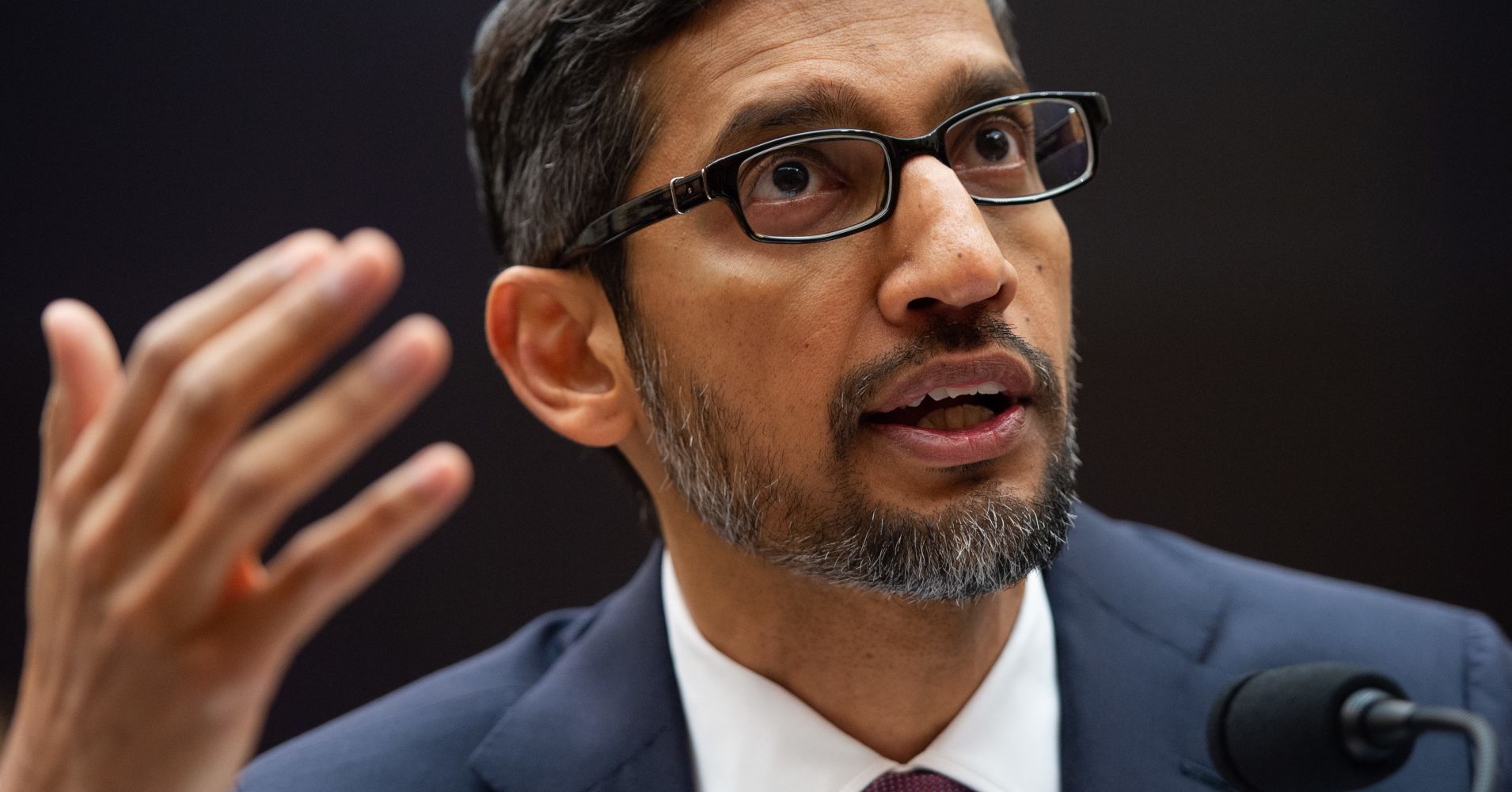By: Jillian D’Onfro – cnbc.com – December 11, 2018
It was Sundar Pichai’s turn in the congressional hot seat.
Google’s CEO testified before the House Judiciary Committee on Tuesday for 3.5 hours while lawmakers grilled him on a wide range of issues, including potential political bias on the company’s platforms, its plans for a censored search app in China and its privacy practices.
This is the first time Pichai has appeared before Congress since Google declined to send him or Alphabet CEO Larry Page to a hearing on foreign election meddling earlier this year. That slight sparked anger among senators who portrayed Google as trying to skirt scrutiny.
Tuesday’s hearing culminated a tough year for big tech companies, as lawmakers and the public have become increasingly skeptical about Silicon Valley’s effects on democracy, misinformation and privacy. Despite some occasionally intense questioning, the soft-spoken Pichai remained cool and confident overall throughout the proceedings as he either defended Google or expertly dodged giving specific answers.
Accusations of manipulation
Tuesday’s hearing was titled “Transparency & Accountability: Examining Google and its Data Collection, Use, and Filtering Practices” and many representatives posed questions on whether or not Google’s search results were biased against conservative points of view.
This has been a consistent narrative over the past year, as Republican lawmakers — and even President Donald Trump — have accused Google and other tech platforms of suppressing conservative voices. Pichai echoed Google’s previous denials, and repeatedly responded that Google’s search algorithms did not favor any particular ideology, but instead surfaced the most relevant results, which could be affected by the time of a users’ search, as well as other factors like their location.
One particularly fiery take against that line of questioning came from Rep. Ted Lieu (D-Ca.) who said that the queries on conservative bias “wasted time” given that private, profit-seeking companies like Google are protected by the First Amendment. Even if Google was biased, he said, that would be its right. However, he also used sample Google searches to show that Google would turn up positive search results about Republicans and negative search results about Democrats.
“If you want positive searches, do positive things,” Lieu said. “If you get bad press, don’t blame Google. Consider blaming yourself.”
Lieu has made similar points at past hearings that included Facebook, Twitter, and Alphabet.
Several representatives brought up other kinds of bias.
Google is by far the most popular search engine in the world, with more than 90 percent market share, according to StatCounter, but the process of how exactly Google’s platforms surface search results are complicated and opaque. Regulators and competitors like Yelp have criticized Google for surfacing its own services, like maps, jobs postings, business reviews and travel information over information from other websites. Last year, the EU slapped Google with a $2.7 billion antitrust fine for its shopping results.
“I strongly support an open, decentralized internet that is free of powerful gatekeepers with the ability to discriminate against rivals, threaten innovation or harm consumers,” Rep. David Cicilline (D-RI) said, and asked whether Google would commit to ending any discriminatory practices against competitors.
In response, Pichai said that Google “provides users with the best experience and the most relevant information,” and denied that the company used discriminatory practices in its search results. When Cicilline pushed him on whether Google would support some kind of antitrust legislation, Pichai vaguely answered that Google would be “happy to engage constructively on legislation in any of these areas.”
Pichai was evasive on China plans
Another topic that came up multiple times was Google’s plan to launch a censored search engine in China. The Intercept first reported details of the project over the summer, which would block search results for queries that the Chinese government deemed sensitive, like “human rights” and “student protest” and link users’ searches to their personal phone numbers.
One of the first specific questions about Google’s plans in China came from Rep. Sheila Jackson Lee (D-Tx.) who expressed concern that Google would aid in the oppression of Chinese people “looking for a lifeline of freedom and democracy.”
“Right now, we have no plans to launch search in China,” Pichai answered, adding that access to information is “an important human right.”
Pichai has said in the past that Google is “not close” to launching a censored search result in China, though Tuesday’s comments appear to further distance the company from those efforts. The Intercept reported in September that at one point Google employees working on the “Project Dragonfly” efforts were told to get it in “launch-ready state” to roll out upon approval from Beijing officials.
Pichai would not, however, go so far as to commit not to launch “a tool for surveillance and censorship in China,” as he was asked to do by Rep. David Cicilline (D-RI).
“We always think it’s in our duty to explore possibilities to give users access to information,” Pichai said.
Human rights groups and Google’s own employees have spoken out publicly about this issue, with more than 730 recently signing an open letter calling on the company to cancel its efforts, and lawmakers at Tuesday’s hearing made it clear that they, too, are extremely wary of any plans by Google to work with China’s oppressive regime.
To see the tweets, comments, and the remainder of this article, click read more.
Source: Google CEO Sundar Pichai testifies before Congress on bias, privacy
 Listen Online
Listen Online Watch Online
Watch Online Find a Station in Your Area
Find a Station in Your Area







 Listen Now
Listen Now Watch Online
Watch Online
